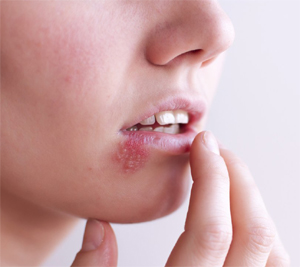
What is herpes simplex?
Herpes simplex is a viral infection caused by the herpes simplex virus. Also called as HSV. Herpes can appear in various parts of the body, most commonly on the genitals or mouth. There are two types of the herpes simplex virus.
HSV-1: Also known as oral herpes, this type can cause cold sores and fever blisters around the mouth and on the face or sore throat may cause sore throat.
HSV-2: called Genital herpes, often simply known as herpes, may have minimal symptoms or form blisters that break open and result in small ulcers. These typically heal over two to four weeks.Tingling or shooting pains may occur before the blisters appear.
Causes
The herpes simplex virus is a contagious virus that can be passed from person to person through direct contact. Children will often contract HSV-1 from early contact with an infected adult. They then carry the virus with them for the rest of their lives.
HSV-1
- Affects lips and mouth area
- Often spreads by kissing or sharing cups
- Pain, burning, itching may occur before sores appear
- Lesions range from slightly raised, reddish areas to crusted blisters
HSV-2
- Affects genital region
- Spread by sexual contact or to babies by their mothers during childbirth
- May not cause symptoms prior to breakout
- Lesions are red, fluid-filled, or crusty
HSV-2 is contracted through forms of sexual contact with a person who has HSV-2. It is estimated that around 20 percent of sexually active adults are infected with HSV-2.
Risk factors
Anyone can be infected with HSV, regardless of age. Your risk is based almost entirely on exposure to the infection.
In cases of sexually transmitted HSV, people are more at risk when they participate in risky sexual behavior without the use of protection, such as condoms. Other risk factors for HSV-2 include:
- having multiple sex partners
- having sex at a younger age
- being female
- having another sexually transmitted disease (STD)
- having a weakened immune system
If a pregnant woman is having an outbreak of genital herpes at the time of childbirth, it can expose the baby to both types of HSV, and may put them at risk for serious complications.
Signs and Symptoms
It is important to understand that someone may not have visible sores or symptoms and still be infected by the virus. And they may transmit the virus to others.
HSV types 1 and 2 both cause blistery, red sores, but the two infections have some differences.
An initial infection of HSV-1 can be widespread, with several sores on the lips or inside the mouth.It can take a day to 26 days from first exposure to the virus for sores to begin to appear.
Some of the symptoms associated with this virus include:
- blistering sores (in the mouth or on the genitals)
- pain during urination (genital herpes)
- itching
You may also experience symptoms that are similar to the flu. These symptoms can include:
- fever
- swollen lymph nodes
- headaches
- tiredness
- lack of appetite
HSV can also spread to the eyes, causing a condition called herpes keratitis. This can cause symptoms such as eye pain, discharge, and a gritty feeling in the eye.
How homeopathy helps ?
Homeopathy has its main action on the immune system.as herpes simplex
All Diseases
Opening Hours
- Monday To Saturday 11:00 AM - 1:00 PM
6:00 PM - 8:00 PM - Sunday Closed